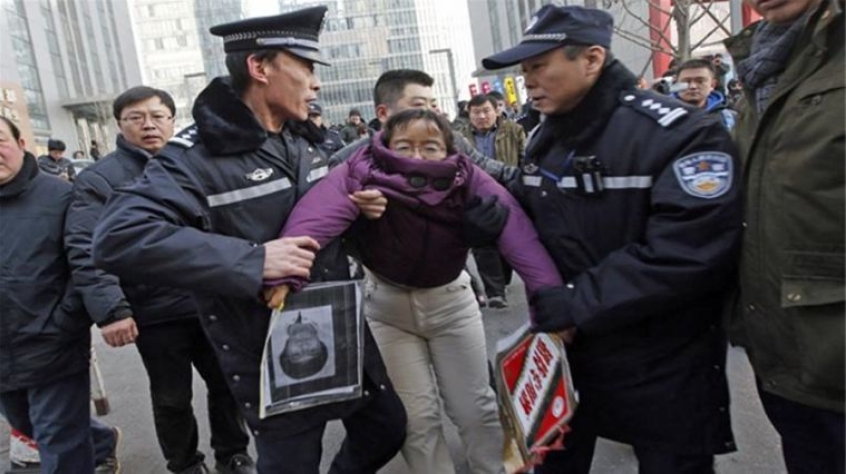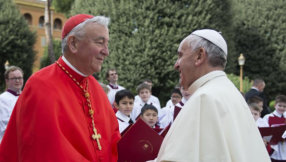
The Chinese government has murdered "hundreds of thousands" of members of the Uighur Muslim minority and the Falun Gong religious group to harvest their organs, a human rights lawyer has claimed.
The China Tribunal, a group investigating the organ harvesting, said at a meeting of the United Nations Human Rights Council on Tuesday that the Chinese government was taking hearts, kidneys, lungs, and skin from persecuted religious groups.
"Forced organ harvesting from prisoners of conscience, including the religious minorities of Falun Gong and Uighurs, has been committed for years throughout China on a significant scale, and that it continues today. This involves hundreds of thousands of victims," China Tribunal lawyer Hamid Sabi told the UNHRC.
This constitutes crimes against humanity, said Sabi, and is equivalent to genocide.
"Victim for victim and death for death, cutting out the hearts and other organs from living, blameless, harmless, peaceable people constitutes one of the worst mass atrocities of this century," he added. "Organ transplantation to save life is a scientific and social triumph. But killing the donor is criminal."
Sabi was presenting evidence from the tribunal's final report on the matter, which was published in June.
According to the report, a "very substantial number" of victims were "killed to order" by the Chinese government and were "cut open while still alive for their kidneys, livers, hearts, lungs, cornea and skin to be removed and turned into commodities for sale."
The body parts were used for medical purposes, the report said, citing extremely low waiting times for organ transplants in Chinese hospitals as evidence of the practice.
Sabi concluded by saying that it is the "duty" of international bodies like the U.N. to investigate the tribunal's findings "not only in regard to the possible charge of genocide, but also in regard to crimes against humanity, which the tribunal does not consider to be less heinous."
"It is the legal obligation of UN Member States and the duty of this council to address this criminal conduct," he said.
Falun Gong, a religious practice based on meditation, physical exercises, and morals, has long been banned in China. The Chinese government outlawed Falun Gong as a cult in 1999 and jailed many practitioners.
Around 2006, Western media began reporting that the Chinese government was harvesting the organs of Falun Gong prisoners.
In the past, China has admitted that it would regularly take the organs of prisoners on death row and use them in transplants. However, in 2015, China claimed it had ended the practice of taking organs from executed prisoners and said it would rely instead on volunteers, according to Reuters.
But in 2016, the New York Times quoted some investigators and Falun Gong adherents as stating that their compiled data from individual hospitals showed at least 60,000 organ transplants a year, about six times the official total of about 10,000 the year prior. The difference, they said, was made up by forced organ extractions from prisoners of conscience.
Additionally, China's treatment of its 11 million-strong Uighur minority has received international criticism. Human rights groups believe as many as one million Uighurs and other Muslim Chinese have been detained in China without trial in re-education camps, where they are subject to torture, forced labor, and political brainwashing.
This month, footage surfaced of hundreds of blindfolded and handcuffed men, believed to be Uighur Muslim prisoners, being moved by Chinese police in the western region of Xinjiang. Nathan Ruser of the Australian Strategic Policy Institute told the Sunday Times the footagemay be linked to reports that the authorities were planning to ease overcrowding at detention facilities.
On Tuesday, Deputy Secretary of State John Sullivan spoke at the U.N. General Assembly and called for an investigation into the alleged human rights abuses in the province of Xinjiang, home to most of the country's Uighur population.
"The U.N. must seek the immediate unhindered and unmonitored access to Xinjiang for the UN High Commissioner for Human Rights," said Sullivan. "The United Nations, including its member states, have a responsibility to stand up for the human rights of people everywhere, including Muslims in Xinjiang."
Sullivan also spoke of the Chinese Communist Party's "extreme hostility to all faiths since its founding seventy years ago," which he said has "only intensified in recent years."
"For many years, it has restricted the free and independent practice of Christianity, which has only grown in recent years," he said. "In an effort to eradicate any faith that the CCP deems a threat to its ideology, children are banned from attending church services.'
Sullivan stressed that it is imperative that the U.N. work to continue to monitor China for human rights abuses, especially "the repression of religious freedom and belief."
"History will judge the international community for how we respond to this attack on human rights and fundamental freedoms," he said.
Original article can be read here.













